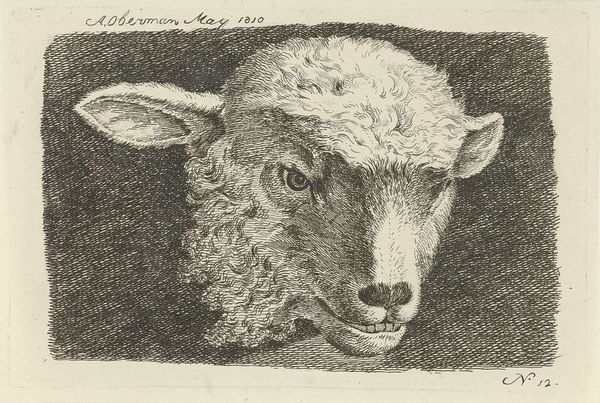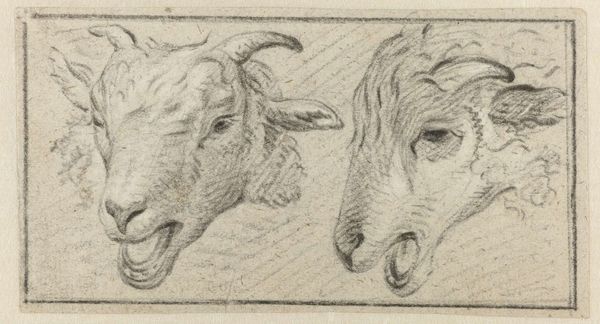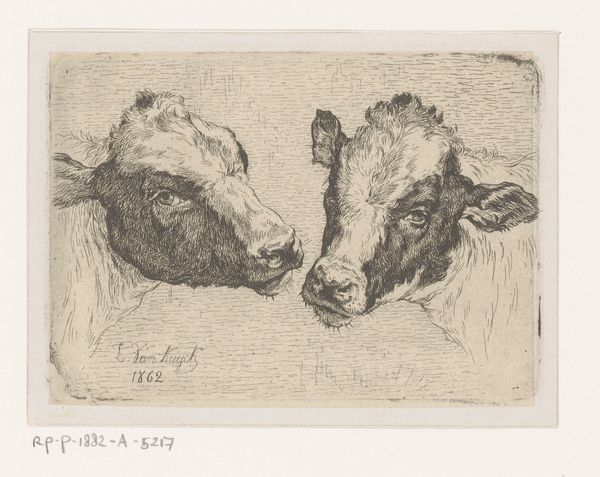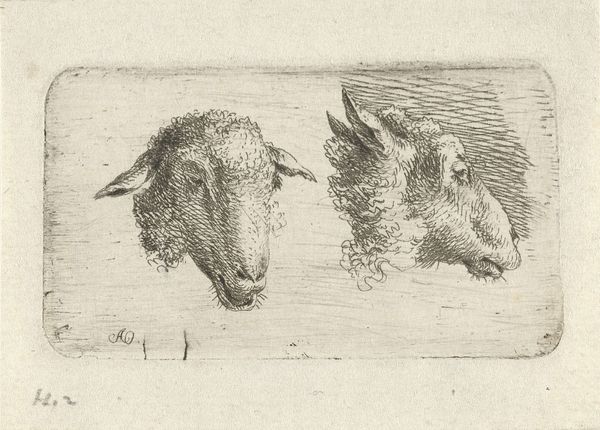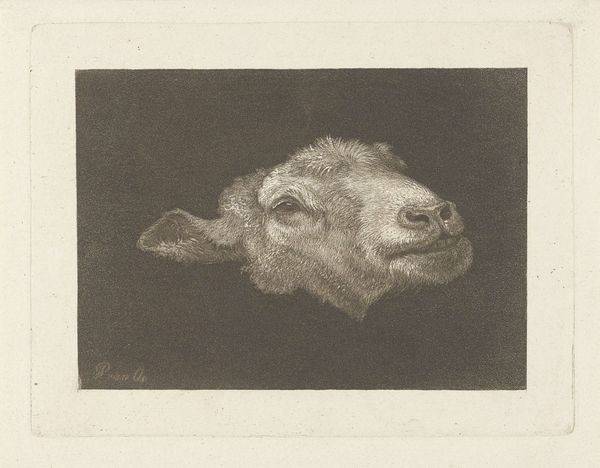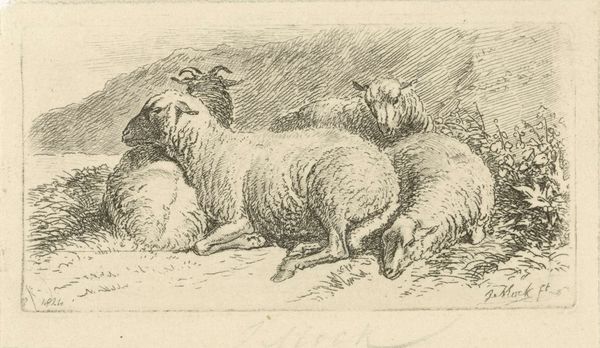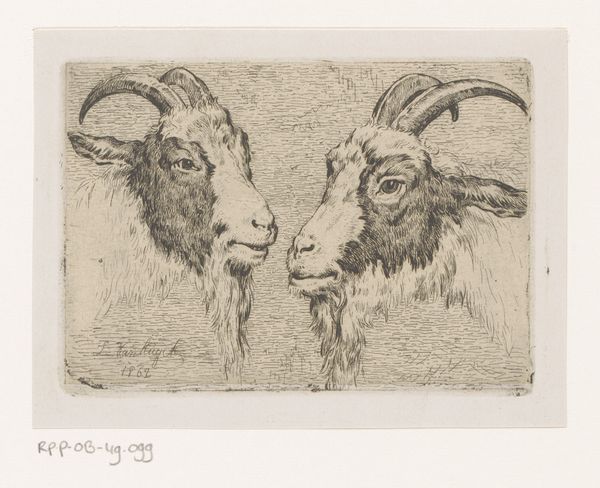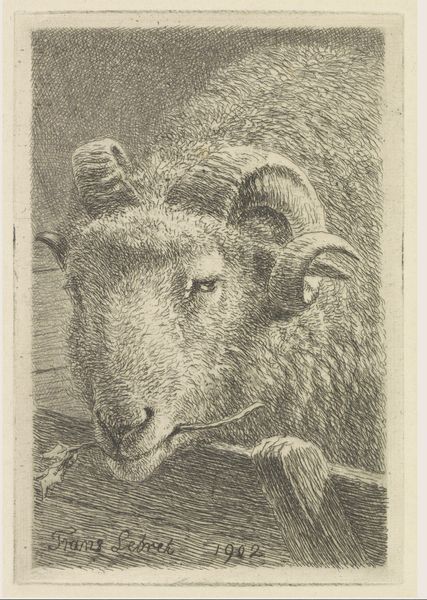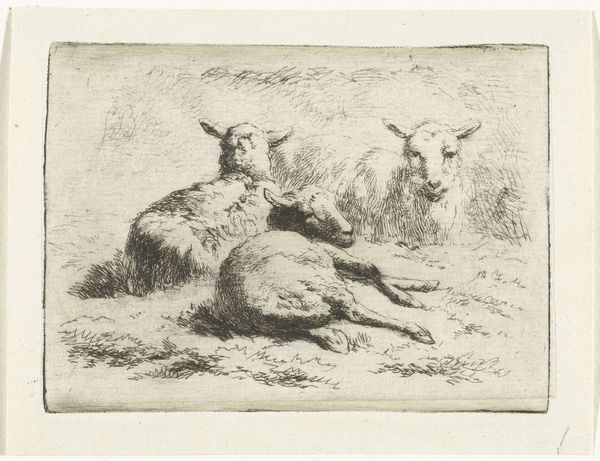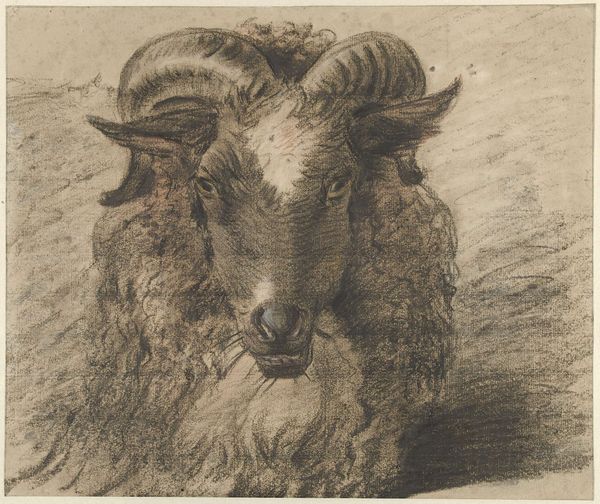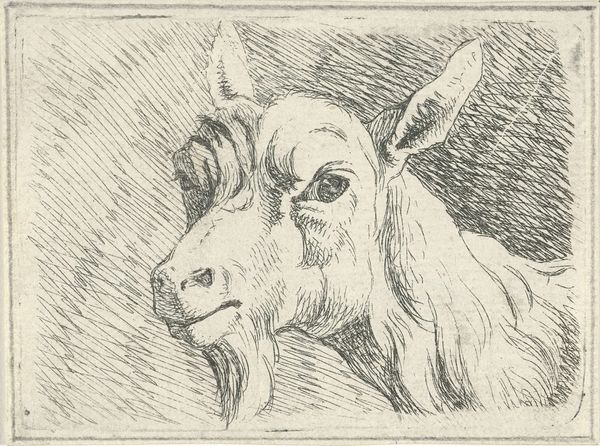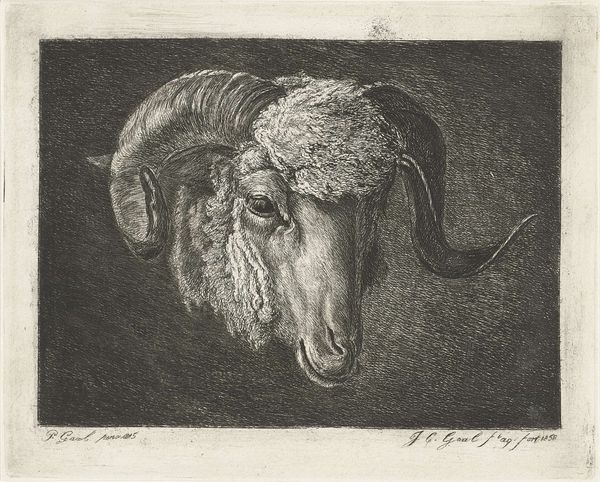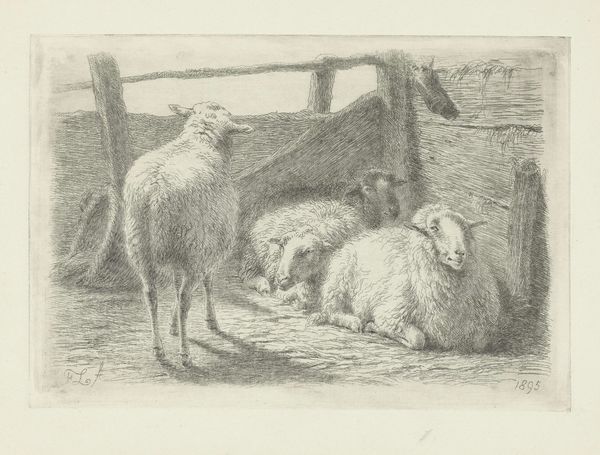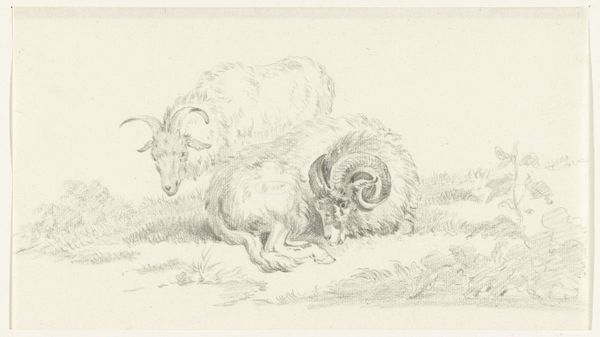
print, etching, engraving
#
portrait
#
animal
# print
#
etching
#
engraving
#
realism
Dimensions: height 115 mm, width 174 mm
Copyright: Rijks Museum: Open Domain
Editor: Right, next up, we have Anthony Oberman's "Two Sheep's Heads and a Head of a Lamb," an etching and engraving from around 1809-1811. The realism is really striking, but there's something a bit unsettling about these disembodied heads, too. What do you see in this piece? Curator: It is compelling, isn’t it? Beyond the remarkable realism achieved through etching and engraving, consider the symbolic weight of the lamb, juxtaposed with the sheep. For centuries, the lamb has been associated with innocence, sacrifice, and religious connotations. This imagery connects to cultural memory – sacrifice, both literal and symbolic. Editor: Sacrifice? I was mainly focusing on the detail in rendering the wool! So, is the artist making a religious comment? Or perhaps referring to the agricultural importance of sheep at the time? Curator: It’s possible to interpret it on multiple levels. The stark realism pushes us to confront the animal's physicality, a potential acknowledgement of humanity’s dependence on, and consumption of, animals. Oberman uses a very limited palette; how might that add to our understanding of the subject matter and symbolism? Editor: Maybe the lack of colour gives it a timeless quality? It's interesting how these images connect us back to past beliefs and societal structures. The visual symbols really do carry a lot of cultural weight, like you said! Curator: Precisely! Recognizing the recurring motifs and cultural references helps unlock deeper understandings of a work. In considering the imagery and technique, we start to grasp the continuous dialogue between past and present. Editor: That's really given me a different perspective, moving beyond just "realistic sheep" to the loaded symbolism they represent. Curator: Indeed, the cultural memory continues through Oberman’s work, even to us today.
Comments
No comments
Be the first to comment and join the conversation on the ultimate creative platform.
